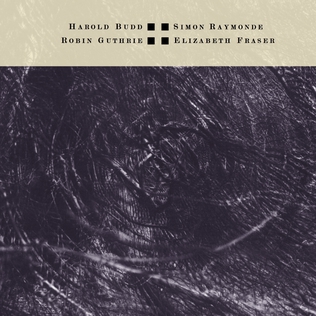The Moon and the Melodies
| The Moon and the Melodies | ||||
|---|---|---|---|---|
 |
||||
| Studio album by Harold Budd, Elizabeth Fraser, Robin Guthrie, Simon Raymonde | ||||
| Released | 10 November 1986 | |||
| Genre | Ambient, dream pop | |||
| Length | 37:15 | |||
| Label | 4AD | |||
| Producer | Harold Budd, Elizabeth Fraser, Robin Guthrie, Simon Raymonde | |||
| Cocteau Twins chronology | ||||
|
||||
| Harold Budd chronology | ||||
|
||||
| Professional ratings | |
|---|---|
| Review scores | |
| Source | Rating |
| AllMusic | |
The Moon and the Melodies was an album resulting from the collaboration of the Scottish group Cocteau Twins and the American composer Harold Budd. It was released by 4AD in November 1986. The name "Cocteau Twins" did not appear on the release, which instead credited the band's three members (Elizabeth Fraser, Robin Guthrie and Simon Raymonde) and Budd individually. The album's heavily treated guitar sounds and euphoric vocalising could be heard in the group's other work from the same period, such as the EP Echoes in a Shallow Bay and the album Victorialand. Budd's stylistic piano tonalities and phrasing on this project were echoed in his solo album Lovely Thunder, released in the same year. A version of the track "Memory Gongs" was released on Lovely Thunder as "Flowered Knife Shadows" and was dedicated to Raymonde.
The phrases "bloody and blunt" and "ooze out and away, onehow" came from Fraser's lyrics on the songs "The Tinderbox (Of a Heart)" and "My Love Paramour", both from the 1983 Cocteau Twins album Head Over Heels. Reusing phrases from old songs as titles for others can be considered one of Fraser's signature characteristics, as can her habit of emphasizing syllables in ways that differ from standard usage.
Fraser sang on tracks 1, 4, 5 and 8. Saxophonist Richard Thomas of Dif Juz appeared on tracks 5, 6 and 7.
All songs written by Elizabeth Fraser, Robin Guthrie, Simon Raymonde and Harold Budd.
...
Wikipedia
